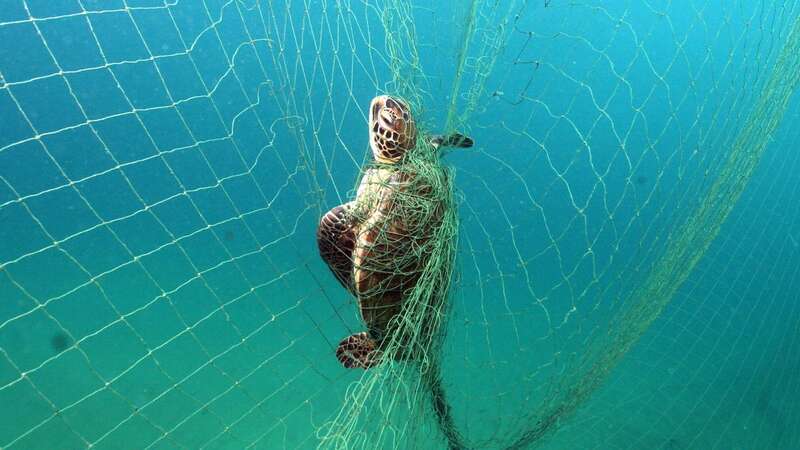Every year, 40,000 green and loggerhead turtles are killed after being accidentally caught in fishing nets across the Mediterranean.
Both are on the list of endangered species, also threatened by overharvesting of eggs, hunting, plastic, warming seas and loss of nesting habitat.
But now, two Devon marine scientists have come up with a bright idea to help protect these vital marine animals.
The researchers from the University of Exeter and The Society for the Protection of Turtles have shown that illuminating nets using a device called a NetLight can significantly reduce the number of turtles getting caught.
Bycatch – unintentionally catching a species during fishing operations – is contributing to the decline of marine species worldwide, including vulnerable creatures such as sea turtles.
 Water company pours raw sewage into river for 23 hours - killing 5,000 fish
Water company pours raw sewage into river for 23 hours - killing 5,000 fish
NetLight, which was developed by conservation engineers Fishtek Marine, is a small, long-lasting, banana-shaped light powered by two AA batteries that is easily attached to the ropes on fishing nets to alert turtles to the danger. The trials with Cypriot fishermen have reduced the number of sea turtles being trapped by 42%.
“Around Cyprus, over 2,800 sea turtles die in nets every year,” said Robin Snape, a researcher at the University of Exeter’s Centre for Ecology and Conservation in Cornwall. Our trials with local fishermen and NetLight have shown this can be significantly reduced.”
He added: “Our work has also revealed NetLights can reduce the bycatch of other threatened species, especially rays, whose numbers fell by 53% when the lights were being used. This device has potential in marine conservation.”
Pete Kibel, co-founder and director of Devon-based Fishtek Marine, said: “These trials have been very encouraging and show NetLight has an important role in helping protect sea turtles. This is also good news for the local fishermen in Cyprus, as bycatch of turtles can damage their nets and reduce their ability to make a living from fishing.”
These turtles are keystone species and a vital part of our marine ecosystems. Protecting them is essential to keep our oceans healthy and functioning. This simple, brilliant idea brings real hope.
Read more similar news:
Comments:
comments powered by Disqus































